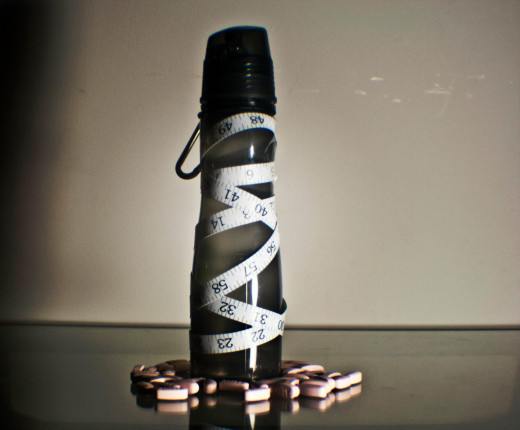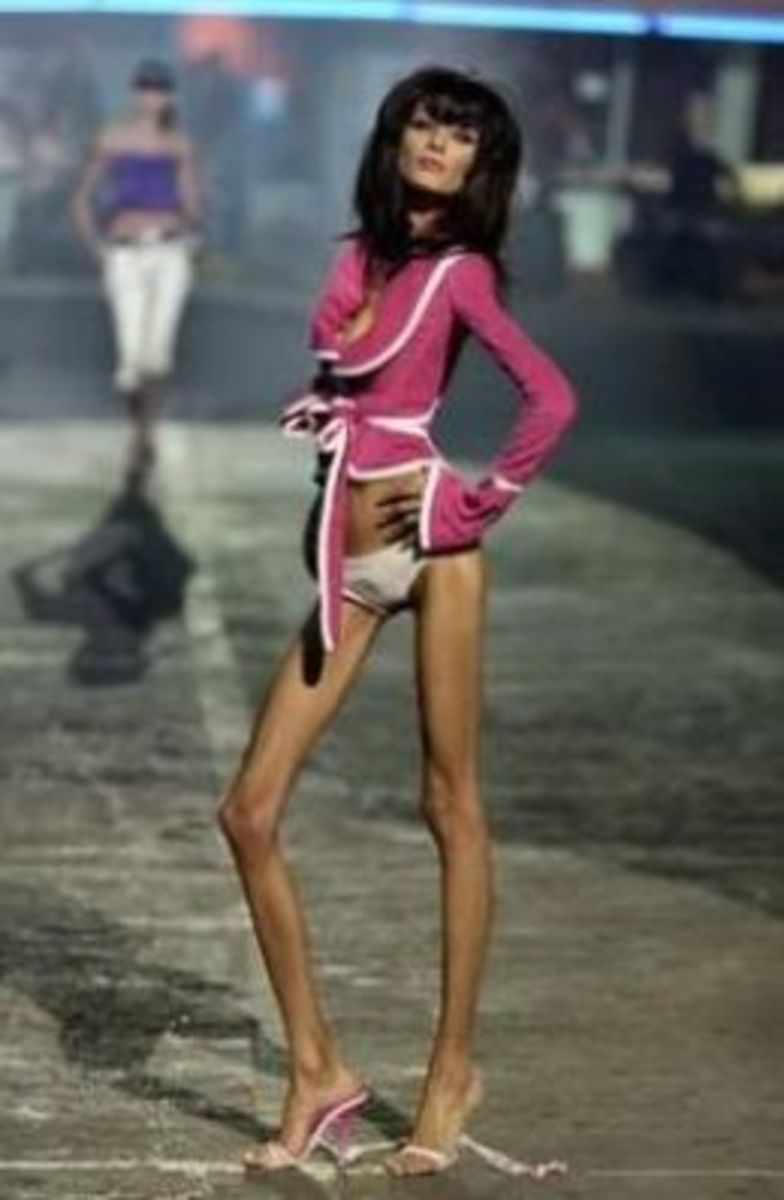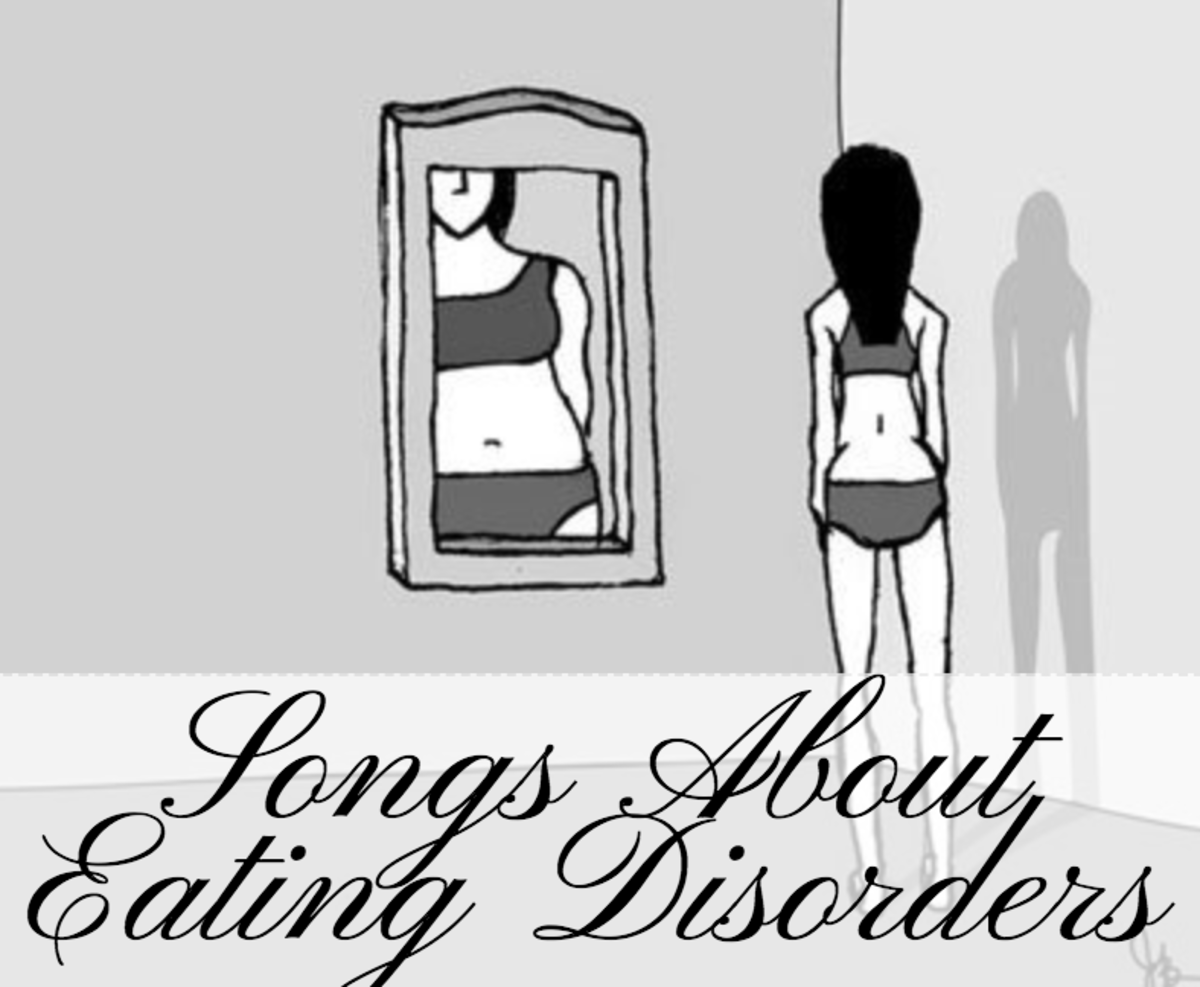Recovery and Relapse - The Cyclical Nature of Eating Disorders
Eating Disorders are Vicious Diseases that Attack the Body, the Mind and the Soul

Many people in recovery can testify that relapse is a part of the process. This book is one of my favorite resources when it comes to avoiding relapse and maint
Relapse and Recovery, an Ongoing Process
When you are dealing with an eating disorder, you must understand that you are dealing with a very cyclical disease. Relapse is very much a part of recovery, and few people can go from a life of behaviors, to a life free from their eating disorder without any hiccups.
I have battled my eating disorder for two decades now, and during that time I have experienced periods of great struggle, as well as periods of great success. I have spent many years in treatment for this disease, and I have been hospitalized countless times. Today however, I am proud to say that I am on the road to recovery, well equipped for the potholes and roadbumps that I know will come my way.
The key to success with eating disorders is persistence, preparation and resiliance.
Stepping Out of the Shadows of Denial
The hardest part about starting recovery is admitting you have a problem. Denial is a huge part of the eating disorder, and is one of the most common reasons that people don't try to get help.
Ed (a nickname for the voice of the eating disorder), likes to tell us that we aren't sick enough for help, that our thighs are to large and that we can't really have a problem. To other people, the lies that Ed tells us are obvious, but to us, the sufferers, his lies are only echoes of the beliefs we have already engrained within ourselves.
When Ed tells us we don't deserve breakfast, we believe him. When he tells us we need to go for a run at 3 in the morning, we believe him. When Ed tells us that the answer to our problems is ALWAYS at the very bottom of that brand new gallon of ice cream we just bought, we believe him.
Realizing that Ed is a liar, and that he only wants what is worst for us is essential to recovery. Once you can tell Ed that is not in your court, you can begin to look for the truth, rather than giving in to Ed's lies.
This is a Short Film I Made to Show People What it is Like Inside the Mind of an Eating Disorder Sufferer
Jenni Schaefer is a fantastic role model for those struggling with an eating disorder and I have utilized all of her books as inspiration for recovery.
Friends of Ed
Ed has many friends. Counter Ed, Miss Perfection and Miss Ery are just a few. They take Ed's place when I am trying to recover, hoping I will slip up and return to my old ways.
Miss Perfection usually pokes her head out first. She is always there, waiting for any sign of a screw up to rub my face in it. She is okay with the idea of recovery, but it needs to go her way. If I choose recovery, it has to be perfect. I must meet my plan to the t, no wiggle room at all. If I don't, I'll never hear the end of it.
Counter Ed isn't friends with Miss Perfection, and from the sound of it, one would assume he isn't friends with Ed either, but they are actually much closer than they appear. Counter Ed tells me that if I want to recover, I must do everything Ed tells me not to do. I must eat more than my meal plan, I must sit on the couch all day and I must never give in to anything Ed tells me. Counter Ed believes that the only way to recover is to suffocate Ed's thoughts with counter-actions. (Luckily I know better!)
Miss Ery is one of Ed's best friends! She is with me throughout my eating disorder, and she stays with me well throughout my recovery. She is a constant reminder of everything in my life that is not going right. Miss Ery likes to try and make me believe that happiness is unattainable. She likes to try and twist situations to her own benefit.
Miss Ery, Counter Ed and Miss Perfection make up quite the team. Luckily, I have my own team working just as hard, or harder, to try and help me silence their nagging voices.
Whenever I Start to Hear Ed's Voice, I Focus on the Things that Truly Matter to Me

Do you know someone struggling with an eating disorder?
Reclaiming Life, Choosing Recovery
One out of ten people with anorexia will die from this disease. A majority of those with eating disorders will never get to know what recovery is like. Anorexia is a vicious battle that wears down the body, the mind and the soul, leaving a shell of a person behind.
I have struggled with my eating disorder for close to two decades. I have known more years with it, than without it. This battle is not one that I would wish on my worst enemy. But although the journey is a rocky one, I do know from experience that recovery is well worth it.
It has taken me many years to reach this point, this place where finally I can see all of the things that my eating disorder has taken from me, and all of the things that it will continue to take if I don't choose recovery. It has not been easy, but I've made it.
Recovery isn't a fixed point - it is a continuous journey, a lifetime of making decisions that empower me, rather than decisions that tear me down. Recovery is about realizing the potential within me, rather than fixating on the flaws. Today, when I see someone struggling from this disease, I can't help but cry because I know the pain behind the lies.
I know that I have much work to do in my journey, and I know that it will not always be easy, but at least I know it's worth it.
© 2015 Kathleen Odenthal










